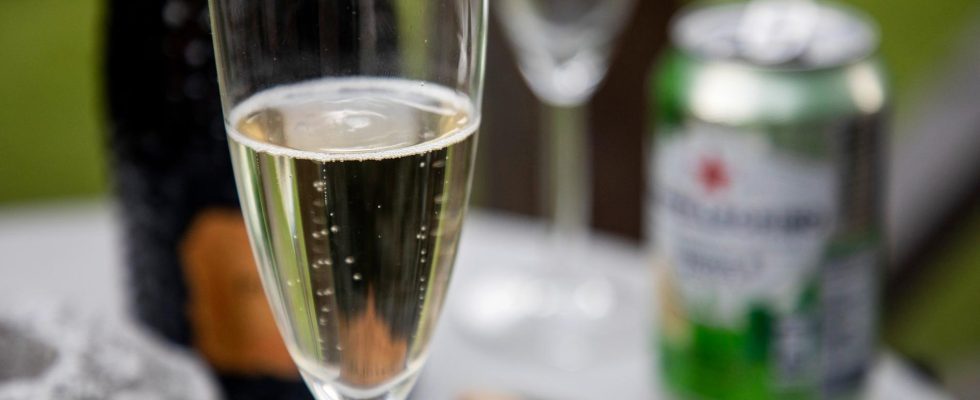unsaveSave
expand-left
full screen The so-called “addictive personality” is not something that has been proven in research, says alcohol researcher Sara Wallhed-Finn. Archive image. Photo: Christine Olsson/TT
Three million Swedes drink too much, a new report states. And in recent years, several old “truths” about alcohol have been overturned by new findings. A glass of wine a day – good or bad?
The alcohol researcher busts the myths about the Swedes’ favorite drug.
“A glass of wine a day can be healthy”
– False. A protective effect against heart and vascular diseases has previously been seen for people over 40, but in more recent studies with more modern research methods, the protective effects are no longer visible. But even if one were to assume that there was a small protective effect, the other negative effects on health outweigh the other scales, says Sara Wallhed-Finn, alcohol researcher at Karolinska Institutet.
“If you have trouble sleeping, a little alcohol can help you”
– False. It can make you fall asleep faster, but sleep as a whole deteriorates. You get poorer sleep quality and tend to wake up more during the night. So the sum of that will be negative on sleep.
“If you train during the day and then drink alcohol in the evening, you have completely ruined your results”
– I don’t know if I should say true or false, but it is in any case exaggerated. If you drink in moderation, according to current recommendations, there are no major risks, but of course if you drink a lot it has consequences for your training results.
“If you’re about to get sick, it can help to take a drink with strong alcohol”
– False. Alcohol makes you more susceptible to infection, especially with higher consumption. As said, alcohol also has a worsening effect on sleep, which can also contribute to increased susceptibility to infection.
“People who easily become addicted to other things such as, for example, caffeine or gambling become more easily addicted to alcohol”
– True. There is partly a biological component, where research shows that addiction problems are hereditary, but environmental factors also play a big role. However, there is a lack of research support for the idea of an “addictive personality”. However, there are certain personality traits that are risk factors for developing an addiction. It is about people who are sensation seekers, adventurous and impulsive. People with anti-social behaviour, such as criminality, are also at higher risk.
“Alcohol increases the risk of cancer.”
– True. The risk increases with each glass, but it is small if you stay under these ten glasses a week. This applies to the types of cancer where alcohol passes through the body, such as mouth, throat, bowel, liver and rectal cancer, but also breast cancer for women.
FACTS The National Board of Health and Welfare’s guidelines for risky use of alcohol
The new guidelines presented by the National Board of Health and Welfare in autumn 2023 were drawn up as guidelines for care in order to be able to identify people in need of support.
Risky use is defined as drinking either ten standard glasses or more per week or drinking four standard glasses or more per drinking occasion at least once a month.
A new survey from the Central Association for Alcohol and Narcotics Information. CAN, shows that 41 percent of adults in Sweden have a risky use of alcohol if you look at the National Board of Health and Welfare’s new guidelines. This corresponds to over three million Swedes.
Source: National Board of Health and Welfare
Read more
